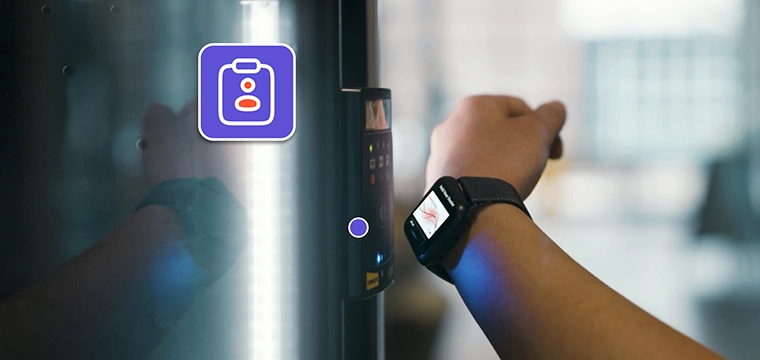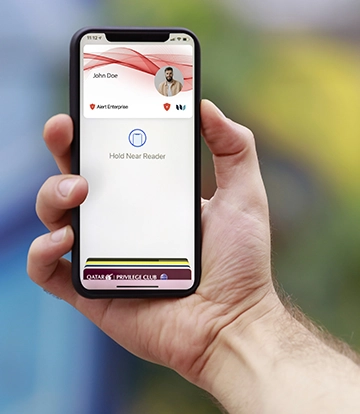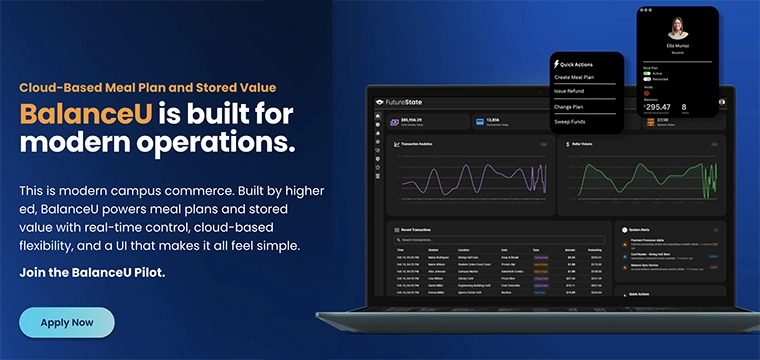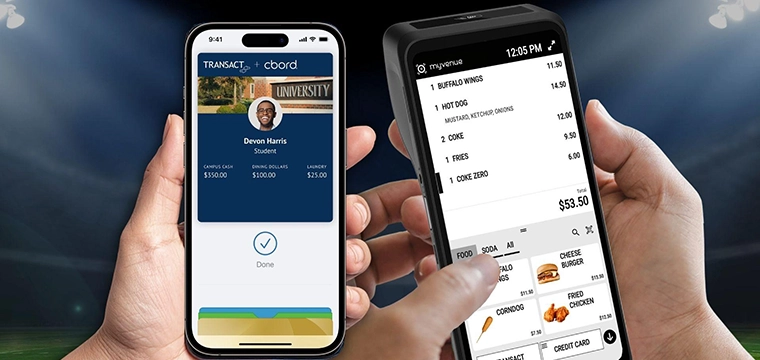
By Willem Ryan, Alert Enterprise
Campus activity may be dwindling down this time of year, but security threats aren’t going anywhere.
There have been long-existing security gaps in the educational systems, allowing hackers and criminals to exploit them with ease. According to the U.S. Department of Education, there were 38,059 criminal offenses reported on more than 10,000 college campuses in 2022. Unsurprisingly, it’s been reported that 60% of current and prospective undergraduate and graduate students said that campus safety was a factor they considered when choosing their school.
It’s become a global truth that efficiency and security in the education sector are paramount. In this fast-paced and populated environment, a key solution has emerged as a game changer, revolutionizing the way we interact with campus infrastructure and services: the integration of mobile credentials.
Picture this: A campus where every student’s smartphone acts as a magic wand unique to them, granting them access to every corner of university life with a simple tap. Meanwhile, integration with access control systems allows for real-time authentication and monitoring of both physical and cyber entry points. This vision isn’t just a distant dream but a tangible reality, thanks to the seamless integration of various systems into a connected ecosystem for higher education mobile credentials.
At the heart of this ecosystem lies the integration of the Guardian platform with credential managers (like HID, LEGIC, Wavelynx and Safetrust), access control software, corporate SSO identity partners and the Alert Enterprise Wallet App for mobile credentials that connects to Apple, Google and Samsung Wallet—allowing universities to leverage cutting-edge technology to enhance security and streamline operations. Gone are the days of fumbling for physical ID cards or struggling with outdated key systems. With mobile credentials, students, faculty and staff can seamlessly navigate through campus facilities, whether it's accessing buildings, dormitories, computers, laboratories, or even securing lockers with a simple tap of their smartphones. This means that students no longer need to carry around bulky keys or remember complex combinations. Instead, they can securely gain access with the convenience of their smartphones, freeing up mental space to pursue academic excellence.
The benefits extend far beyond convenience. By embracing mobile credentials, universities are also embracing a culture of innovation and adaptability. These credentials serve as the gateway to a world of possibilities, enabling the integration of various services and resources into a single, cohesive platform. Here are six benefits that are scoring high:
 Adaptability: The beauty of this connected ecosystem lies in its adaptability and scalability. Whether it's a small liberal arts college or a sprawling research university, the principles remain the same. By leveraging existing systems and modernizing campus card programs, universities can tailor their mobile credential solutions to meet the unique needs of their community.
Adaptability: The beauty of this connected ecosystem lies in its adaptability and scalability. Whether it's a small liberal arts college or a sprawling research university, the principles remain the same. By leveraging existing systems and modernizing campus card programs, universities can tailor their mobile credential solutions to meet the unique needs of their community.
Integration with network login systems: With mobile credentials, students and faculty can not only access physical spaces but also seamlessly connect to the university's digital resources. Whether it's accessing online courses, library printers and databases, or university portals, the transition from physical to digital becomes effortless, enhancing productivity and collaboration within the academic community.
Campus security and emergency preparedness: By using geolocation technology and real-time communication platforms, universities can quickly locate and communicate with individuals in the event of an emergency such as a natural disaster or security threat. Additionally, mobile credentials can be remotely deactivated or updated, allowing administrators to respond swiftly to security concerns or policy changes. This proactive approach to safety not only protects the well-being of students, faculty and staff but also improves the overall resilience of the campus community.
A more sustainable future: By reducing the reliance on physical materials such as plastic ID cards and key fobs, campuses can significantly decrease their environmental footprint. This shift towards a paperless and keyless campus aligns with broader sustainability initiatives and reflects the values of the current generation of students who are increasingly conscious of environmental issues.
New opportunities for personalized experiences: Through data analytics and machine learning algorithms, universities could even potentially analyze user behavior and preferences to tailor services and resources to individual needs. For example, students may receive personalized recommendations for campus events, academic resources, or extracurricular activities based on their interests and past interactions. This level of customization not only enhances the overall campus experience but also fosters a deeper sense of engagement and belonging among students.
A positive impact on campus culture: Mobile credentials aren't just about technology; they're about fostering a sense of belonging and community. By providing seamless access to campus resources, universities are breaking down barriers and creating a more inclusive environment for all.
The integration of mobile credentials represents a transformative shift in higher education, offering numerous benefits ranging from enhanced security and efficiency to personalized experiences and environmental sustainability. As universities continue to embrace this digital revolution, they are not only reimagining campus life but also shaping the future of education in a connected world. By creating a connected ecosystem that seamlessly integrates access control systems, network logins and campus amenities, universities are redefining the way we interact with our environment. And by harnessing the power of mobile technology, universities are creating safer, more efficient and more inclusive campuses that empower students to thrive. Contact Alert Enterprise or click here to learn more about creating a closed-loop education system that can be securely accessed with a tap.
 Willem Ryan Senior Vice President, Marketing and Communications
Willem Ryan Senior Vice President, Marketing and Communications
Mr. Ryan is responsible for overseeing Alert Enterprise’s global marketing and communications strategy, and building brand awareness, supporting pipeline growth and market expansion worldwide. Mr. Ryan joined Alert Enterprise in 2019 and brings more than 15 years of successful sales, product, and marketing experience in establishing a heightened presence of global brands in the security industry.




